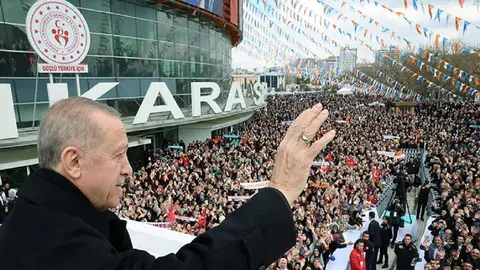Turkey's growing influence in the Gulf

Turkey's economic situation is currently at a delicate moment. Inflation has soared to 44%, and the Turkish lira has lost 90% of its value over the last decade, reaching a new low after President Recep Tayyip Erdogan's election victory.
Erdogan has appointed Mehmet Simsek as the new Minister of Treasury and Finance. Simsek's track record is outstanding and he promises to restore "predictability" to the Turkish economy. Foreign investors and analysts have interpreted Simsek's appointment as an indication that Erdogan might change his stance on lowering interest rates, which caused inflation to rise and foreign capital to migrate.
In this vein, Erdogan sees the Gulf countries as important partners in various fields, such as trade, economics, energy and defence. And three main factors influence Turkey's decision to strengthen its rapprochement with the Gulf countries: economic stability and trade opportunities, security and regional influence, and diplomatic normalisation and reconciliation.

Economic stability and commercial opportunities are important points. Three days after the results of the vote in Turkey, the UAE ratified a $40 billion, five-year trade agreement. Saudi Arabia has also begun to make economic deals with Turkey, with oil company Saudi Aramco meeting in the Turkish capital with 80 contractors to discuss potential projects worth $50 billion.
Security and regional influence. Conflicts in Syria, Libya, Yemen and Iraq, as well as the threat of Iran and its proxies to combat terrorism are among the common interests of Turkey and the Gulf states in the Middle East.
Diplomatic normalisation and reconciliation. In an effort to overcome its regional isolation and attract much-needed Gulf funds, Turkey has initiated efforts to re-establish relations with its former regional adversaries, including Saudi Arabia, Egypt and the United Arab Emirates.
Maritime security is one area where Turkey could play a beneficial role in the Gulf. The Gulf region is a crucial source of global oil supply and trade, but also faces challenges such as piracy, terrorism and sabotage. Iran's recent seizure of commercial oil tankers in Gulf waters has fuelled concerns about a potential conflict with the US and its allies. Thirty-eight countries are part of a US-led maritime alliance in the Gulf. The initiative, led by the US and supported by Saudi Arabia, aims to prevent Iranian aggression against commercial vessels, control arms trafficking and counter piracy. Despite this, some Gulf states, including the UAE, have dropped or suspended their participation in the naval force due to dissatisfaction with US protection or concerns about possible Iranian provocation, a fact that was not mentioned by the two countries' national security advisors at their meeting in Washington on Friday.

Turkey has a large and modern navy that can patrol the Gulf waters and deter any aggression or disruption. The Eurasian country also has good relations with most Gulf states and can act as a mediator or facilitator between them and Iran. Middle East affairs researcher Ali Bakir stated that 'if the current trend of US disengagement from the region continues and Turkey's growing regional position continues, Ankara may have the opportunity to strengthen its position in the Gulf'.
Erdogan's leadership in the Gulf is expected to strengthen his position as he seeks to diversify his economic allies, safeguard his security interests and project power in a volatile region. However, Turkey will also have to deal with complex relations between different actors and not become embroiled in conflicts or rivalries that could undermine the country's interests or stability.









